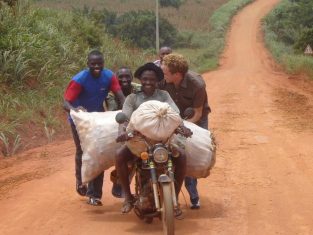

 April 2012 • Note 1 (new edition) •
April 2012 • Note 1 (new edition) •
Against poverty, we have not yet tried everything… The academic world often gives an overview of the history of economic development theories: concept of vulnerability plays no explanatory role regards to development strategies; we find no trace of the idea, advocated by Condorcet, “to struggle the unstable nature of inequality and poverty in opposing the chance to itself ». Until proved otherwise, the growth of rich countries, as we know it today, binds to this principle. It was implemented both in the business world and in the development of social protection systems. Certainly, the extension of this principle to political risk management for the poor runs up against practical difficulties that bear the mark of the handicaps of poor countries. But these obstacles are not logical or ideological, they are practical: So Why will not we try to get through its? Thus, it would be a newcomer for development aid?
In the history of humanity, economic growth has never been stronger than in the past half-century with the emergence of new economic giants, the phenomenon tends to accelerate itself. However, the magnitude of the challenge to reduce global poverty is not decreasing, quite the contrary. At the same time, there is an increase in the frequency of natural disaster or man-made one but also the concentration of damage caused by them. In the midst of this gloomy picture, there is at least good news: the globalization of markets and financial innovation that goes. In fact, the market size has reached a quite large scale (relative to world GDP and extrem risks) for that, thanks to the ingenuity tools which treated her, no more disaster exceeds the capacity to absorb the monetary consequences. How? Simply by splitting the hazards, so that the losses of « concentration ratio » should be reduced to a supportable level by those who are carriers of last resort.
But there is also bad news that exploded in the eyes of the world that the crisis « subprimes » has triggered, but not created, in 2007: risk diversification has to follow a strict discipline, and those who implement have a huge social responsibility; yet there is no automatic fence to stop the toxic effects of further products of those who, with negligence, carelessness or greed, are a perverse use of securitization. Paradoxically, by revealing that the damage spread to the whole world, the same crisis indicates that the distribution of the positive effects of responsible use of securitization can have the same scope, including the benefit of the poor.
Before 2008, the Millennium Development Goals had already been considerably delayed. After the “crash banking”, catch-up becomes a problem. It takes, indeed, with the combination of three effects of the crisis: the increase needs resulting in damage to the least developed countries; the more selective and more expensive access to finance productive investment, and scarcity of public funds available for development assistance. Added to this, as with any major economic shock, the asymmetry of the time of rebuilding, still goes slower than the one of degradation. How to stay the course in these conditions, while taking care not to overload the « overhead » of the world economy faces a slowdown in growth and intense exchange rate volatility? As reported by Th. Khun, the concept which explains that « The crisis means that in front of the obligation to renew the tools », has never been more relevant than today!
